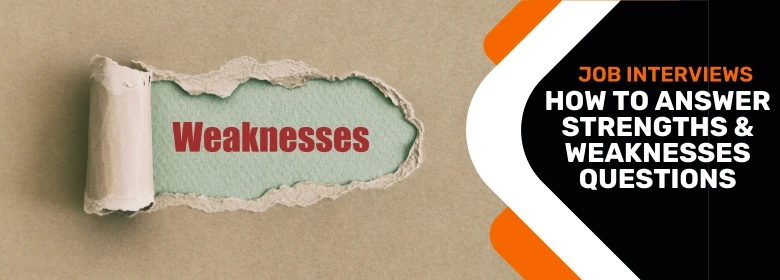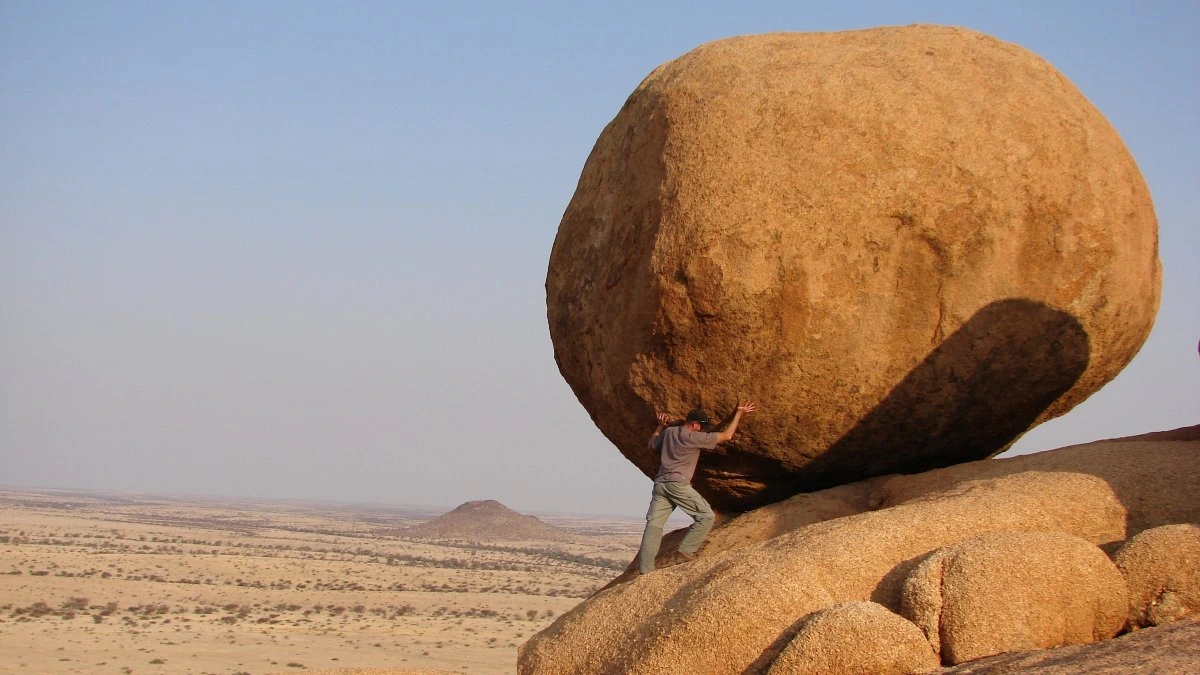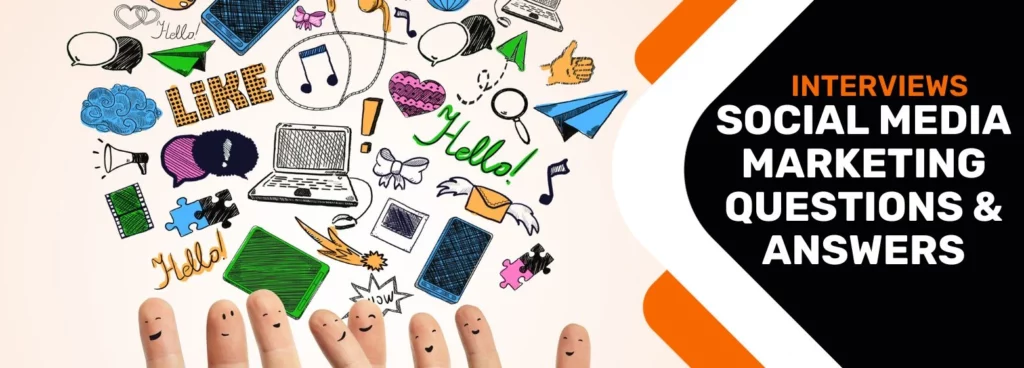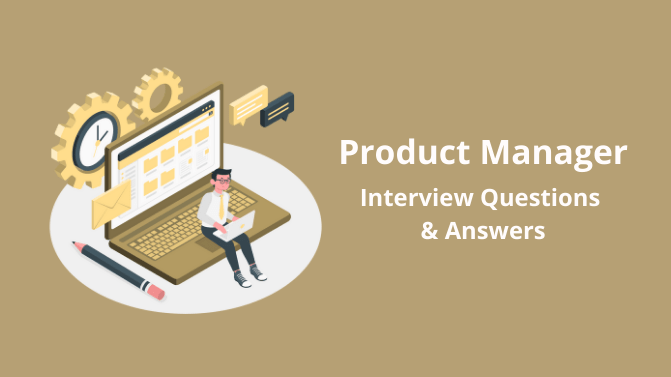Strengths and Weaknesses Interview Questions and Answers with Examples

As a job seeker, one of the most common (and difficult) interview questions that you’ll inevitably encounter is: what are your strengths and weaknesses?
To some candidates, this question can strike fear immediately and leave them stumped. Other candidates may have a rough strategy for answers, but they’re not 100% sure how to answer this question clearly and in a way that lets you stand out from the other interviewed candidates.
To ace your interview, you’ll need to deploy communication skills and use this question to your advantage. Showcase your unique skills, personality, and experience, while also demonstrating how you’re a great fit for the role.
HackerTrail has compiled a detailed list of “strengths and weaknesses interview questions and answers" that will help you answer confidently.
Why Interviewers Ask About Your Strengths and Weaknesses at a Job Interview
Tips on Talking About Your Strengths in a Job Interview
Examples of Strengths to Mention in a Job Interview
Sample Answers to Talk About Your Strengths at an Interview
- Being Proactive
- Empathy
- Collaborative
- Problem-solving
- Time Management
- Optimism
- Relevant Skills
- Technical knowledge
- Leadership
- Multilingualism
Tips for Talking About Your Weaknesses in a Job Interview
Examples of Weaknesses to Mention in a Job Interview
Sample Answers to Talk About Your Weaknesses at an Interview
- Self Criticism Weakness
- Introversion
- Skill Proficiency
- Impatience
- Perfectionism
- Delegation
- Conflict Resolution
- Networking
- Procrastination
- Assertiveness
Conclusion: Strengths and Weaknesses Interview Questions.
Why Interviewers Ask About Your Strengths and Weaknesses at a Job Interview

Interviewers and hiring managers ask this tough question for multiple reasons:
- How well you can evaluate yourself and your level of self-awareness
- Your awareness of your strengths and how you use them in the workplace
- Your awareness of your weaknesses, how you address them, and how you’ve worked on them
- How relevant your qualities are for the applied role
- To understand how you handle pressure when asked a tough question
Tips on Talking About Your Strengths in a Job Interview
If you’re struggling to plan your answer to this question, it can help to think of this question from the point of view of the hirer. What do you think the hiring manager or recruiter might be looking out for in a top candidate who is answering this question?
As a rule of thumb, it is important to be clear in your answer. It is good practice to link your strengths to how they can help you in this new role, and how it can help you contribute to the company’s success.
Whatever you list as strengths, it is crucial to be able to back up your statements with some proof or evidence. Reflect on your work experience and think of clear examples that you can share to demonstrate the strengths that you have just mentioned.
Remember not to exaggerate or bend the truth so as not to run into issues of integrity further down the hiring process. At the same time, avoid a boastful tone of voice when talking about your strengths: aim for confident humility in your answers.
Examples of Strengths to Mention in a Job Interview
When interviewers ask candidates about their strengths, they want to hear how the candidate had applied them at their previous workplace, as well as in this new role. Hence, you will need to think of responses that align with the job description in addition to your previous professional experience.

To start, make a list of your top strengths and see which ones match the job description and its requirements. After you have created a list of strengths, pick 1-3 and dig deeper. Ask yourself “why do you have this strength and how can you prove it based on your work experience?" and “How has this strength helped you in your previous roles or help you succeed in this new role?”
This ensures that your answers are impactful, authentic, and remain relevant and closely linked to the job that you are interviewing for.
If you aren’t sure where to begin, here are some strengths that you can think about in your interview preparation:
- Proactive
- Collaborative
- Empathetic
- Problem solver
- Time Management
- Optimism
- Relevant Skills
- Technical knowledge
- Leadership
- Multilingualism
- Continuous learner
- Team player
- Focused
- Agile
- Honest
- Patient
- Detail-oriented
Sample Answers to Talk About Your Strengths at an Interview
Here is a basic structure for talking about your strengths:
“My biggest strength is [Strength] and I’ve demonstrated this at [work experience where you made use of it], which allowed me to [the goal, impact, or outcome].”
There is no hard and fast rule about how to answer this, so here are some more examples to give you inspiration. The key thing to remember is to be clear and confident when sharing your strengths, but not be too egoistic or exaggerating.
1. Being Proactive
“I am often praised by my superiors and subordinates for being proactive and being able to problem solve under pressure.
Once, our project ran into issues nearing the deadline. Instead of getting overwhelmed in such a stressful situation, I rallied everyone together, brought in experts from other teams and quickly figured out the issue. I then laid out clear and bite-sized steps for everyone and ensured that the project was delivered on time."
2. Empathy
“One of my greatest strengths is my ability to be empathetic towards others. I can easily relate to people and understand their wants and needs.
This gives me an advantage in client meetings as I can deeply empathise with and understand what our clients want, allowing my team to better serve them. Not only has this trait helped me strengthen my client relationships, but it has also improved my work relationships too as I try to see things from their point of view in brainstorming sessions."
3. Collaborative
“My greatest strength is that I’m collaborative and work well in a team. In my previous workplace as a team leader, almost all our project deliverables and tight deadlines were made because of our strong team collaboration. This included weekly brainstorming sessions, and meeting two to three times a week to update each other on the statuses of our work.
I am confident that I can bring my collaborative nature to this role and work seamlessly with the various departments (tech, product, design) to continue developing and improving upon the team’s product.”
4. Problem-solving
"Employers often look for candidates who are natural problem solvers. So, when you identify problem-solving as one of your strengths, the interviewers may give you some complex hypothetical problems to solve.
In order to handle such questions, you need to develop a clear and logical thought process, and preferably some creative solutions that are out of the box. Solving problems successfully would boost your confidence and help you accomplish more within the organization."
5. Time Management
"If you are great at managing your time, do highlight it in your resume as one of your strengths. It indicates that you can prioritise tasks, meet deadlines and stay productive during work hours.
Effective time management lets you get more work done in less time. While it helps you to reduce workplace-related stress, the organization identifies you as a reliable and efficient employee when you showcase your time management skills consistently."
6. Optimism
"A positive attitude toward things can help you significantly in the workplace. Employers love to recruit people who always approach challenges with a can-do attitude. Optimists are usually great team players and tend to develop stronger relationships with colleagues and clients.
Also, having an optimist in the team helps create a more pleasant and productive work environment. In other words, your positive attitude can benefit the organisation as well as yourself."
7. Relevant Skills
"Having a particular set of skills that are most relevant to the job you are applying for is certainly a strength worth highlighting. Before you apply for a job, go through the job description, and try to identify what skills are required for the job.
If you have additional skills that may make you more valuable for the job, do mention them in your resume. Employers prefer candidates who already have relevant skills for the job, rather than conducting on-job training for the employees."
8. Technical Knowledge
"Even if the job doesn’t require any advanced technical knowledge, you should highlight your technical expertise as a strength during the job interview.
While most jobs today require a certain level of technical skills, your advanced knowledge will add more value to your profile. The organisation may not require your technical skills right away, but having such skills could come in handy in the long run."
9. Leadership
"Strong leadership skills are valued everywhere. Even if the position you are applying for is meant for an entry-level job, you should still highlight your leadership skills as a strength during the interview.
If you can inspire and motivate others, you can be an asset to the organisation. Also, your ability to make tough decisions would help you climb the management ladder very quickly."
10. Multilingualism
"Most candidates do not highlight this skill, but the ability to communicate in more than just one language can actually be a great strength for a candidate.
Even if your proficiency in the second (or third) language is not as great as native speakers, your foundational knowledge of those languages may be useful to the company in handling a certain group of clients and customers. Time to brush up on your languages and add it as one of your strengths."
Tips for Talking About Your Weaknesses in a Job Interview
Sharing your strengths is just half the question answered. Now comes the more challenging part: talking about your weaknesses. The key tip is to share about your weakness in a genuine way without putting yourself in a bad light and worsening the chances of landing the job.
Firstly, think about the kind of weaknesses you should share about. Avoid sharing personal or deal-breaking weaknesses (e.g., “I often get into heated arguments with my colleagues.”). Instead, you should share about weaknesses that are common and fairly acceptable in the workplace.

After which - and this is even more important - you need to explain the action steps you have taken to overcome this weakness. Don’t just share your weaknesses and stop the conversation there. You need to show how you are working on yourself in spite of those weaknesses.
It also helps to balance out your weakness by mentioning a strength that compensates for it. For example, if you are not so detail-oriented, share that you are good at seeing connections between seemingly disparate ideas. Again, you must provide an example from your work that showcases that.
You can end off by sharing that you are always open to feedback and advice, and showing how you are willing to learn and improve.
Examples of Weaknesses to Mention in a Job Interview
Keep in mind that these tips are easier said than done, especially since sharing about your weaknesses is a potentially vulnerable area for some candidates.
However, if you are struggling to identify your weaknesses, you can turn to your closest friends or coworkers for feedback on areas that need improvement.
To help you get started, here is a list of weaknesses (that will not ruin your chance of getting hired) you can choose from:
- Self-Criticism
- Introversion
- Skill Proficiency
- Impatience
- Perfectionism
- Delegation
- Conflict Resolution
- Networking
- Procrastination
- Assertiveness
- Self-doubting
- Too detail-oriented
- Writing ability
- Speaking ability/public speaking/presentation skills
- Limited proficiency in a specific skill or software
Sample Answers to Talk About Your Weaknesses at an Interview
While it may be uncomfortable sharing your weaknesses with a hiring manager and people whom you’ve only just met, you can alleviate most of your nerves by preparing your answers in advance.
A simple but effective way of structuring your answer can be this: “My weakness is [weakness], which can lead to [potential negative outcome]. However, over the years I have [steps you have taken to manage this weakness], which has helped me [share a positive outcome].”
Here are some more examples that you can draw inspiration from for your interview preparation:
1. Self Criticism Weakness
“Self-criticism is one of my weaknesses. From the beginning of my career, instead of appreciating the good work I did, I would often start criticising myself for the mistakes or things that I am not good at. For instance, even after successful completion of a project, I would always feel that I did not give my best, or that I should have taken a different approach.
However, I have learned to manage this by consciously taking note of my goals, achievements, and milestones, whether they are big or small, and taking time to celebrate these. This has helped me become more aware of how my work impacts my team and organisation, as well as helped me become better at prioritising my most impactful work."
2. Introversion
"I have always been an introvert. At work, I often shied away from discussing my ideas in team meetings and avoided speaking up in a group setting. I had good intentions, but not sharing ideas wasn’t helping me or the team. Once, my team didn’t meet expectations, and I realised that if I had shared my idea, I could have helped them. That’s when I decided to push myself and challenge my fears.
Firstly, I started sharing ideas with close friends so that I could get comfortable putting my point forward. Then I also joined my local toastmasters’ club and became more comfortable and confident expressing myself in front of an audience. Due to my experience, I also started helping my own team build their own presentation and public speaking skills."
3. Skill Proficiency
“I don’t have as much experience with C++ as I would like. However, when I made a career switch into development, I knew I needed to become proficient in this language to be effective. Hence, I signed up for a 6-month C++ bootcamp, learned the fundamentals, and found that I really enjoyed it and want to continue learning more about it. I am excited to apply myself and the techniques I have learned to this role.”
4. Impatience
"If you often get frustrated when things don’t happen quickly enough, you should mention it as one of your weaknesses during the job interview. You can tell the interviewer that you are practicing mindfulness in order to become more patient during stressful situations. Another effective way to improve is to identify the elements that trigger your impatience and avoid them."
5. Perfectionism
"While being a perfectionist is seen as a strength in most cases, you can mention it as one of your weaknesses during a job interview. Perfectionism can hold you back from completing a task on time. It can also lead to self-criticism and is harmful for long term mental health.
While explaining how you are trying to overcome this weakness, mention that you are learning to prioritise tasks more effectively and managing your perfectionism by setting realistic goals."
6. Delegation
"While showing initiative to take on a new task is appreciated in the professional field, taking on too much work can put you in a tight spot. This can be a good point to highlight while explaining your weaknesses during a job interview.
You should mention that you are working to improve, which may include reading self-help books or attending relevant workshops. Also, you may highlight the fact that you are working on building better relationships at work, which may allow you to trust others with tasks instead of taking on them all by yourself."
7. Conflict Resolution
"If you struggle to resolve conflicts or collaborate with others, you need to highlight it as a weakness during your job interview. Acknowledging this problem is in itself quite commendable, but you do need to explain what steps you are taking to improve.
You can talk about the strategies that would allow you to improve your communication skills, leading to conflict resolution. The practice of meditation and active listening may also help in improving this."
8. Networking
"Not everyone is comfortable making new connections in a brand new environment. If you are one of those, you can highlight your lack of networking skills as a weakness. In order to improve, you should opt for certain strategies, such as attending networking events, creating a proper LinkedIn profile and reaching out to colleagues for informational interviews. Even connecting with people on the internet counts in today’s digital world."
9. Procrastination
"If you are poor at managing your schedule, you should highlight it as one of your major weaknesses. Instead of presenting this trait negatively, you can highlight that you always find smarter ways to get things done faster, instead of working in disjointed periods to get the job done.
While procrastination is still a big issue, explain that you are trying on different time management strategies, such as using Pomodoro technique timers, taking on deadline-oriented tasks, etc."
10. Assertiveness
"If you lack the ability to assert yourself in the workplace, it is better to mention it during the interview. Some people tend to avoid conflict as they find it difficult to engage in such difficult situations with others.
However, if you want your potential employer to hire you, you need to show them that you are willing to work on your assertiveness. Share with the interviewers that you are practicing assertive communication and/or seeking mentorship to do so."
Conclusion: Strengths and Weaknesses Interview Questions and Answers.
We hope this guide gives you ample support in your preparation for this tough question that all candidates find difficult to answer. Always remember to be clear and confident in your response, and also to back up your statements with relevant examples.
Lastly, remember to tie your responses back to the job description to demonstrate that you are well-suited for the role. With enough preparation, you’ll be sure to ace this question the next time it comes your way at the interview. Good luck!
Backend Technology Interview Questions
C Programming Language Interview Questions | PHP Interview Questions | .NET Core Interview Questions | NumPy Interview Questions | API Interview Questions | FastAPI Python Web Framework | Java Exception Handling Interview Questions | OOPs Concepts in Java Interview Questions | Java Collections Interview Questions | System Design Interview Questions | Data Structure Concepts | Node.js Interview Questions | Django Interview Questions | React Interview Questions | Microservices Interview Questions | Key Backend Development Skills | Data Science Interview Questions | Python Interview Questions | Java Spring Framework Interview Questions | Spring Boot Interview Questions.
Database Interview Questions
SQL Interview Questions | PostgreSQL Interview Questions | MongoDB Interview Questions | MySQL Interview Questions | DBMS Interview Questions.
Interview Preparation Tips
I Accepted a Job Offer But Got Another Interview | Preparation Tips For the Virtual Technical Interview | 7 Tips to Improve Your GitHub Profile to Land a Job | Software Engineer Career Opportunities in Singapore | What can you expect during a whiteboard interview | How To Write A Resignation Letter | Recommendation Letter Templates and Tips.





